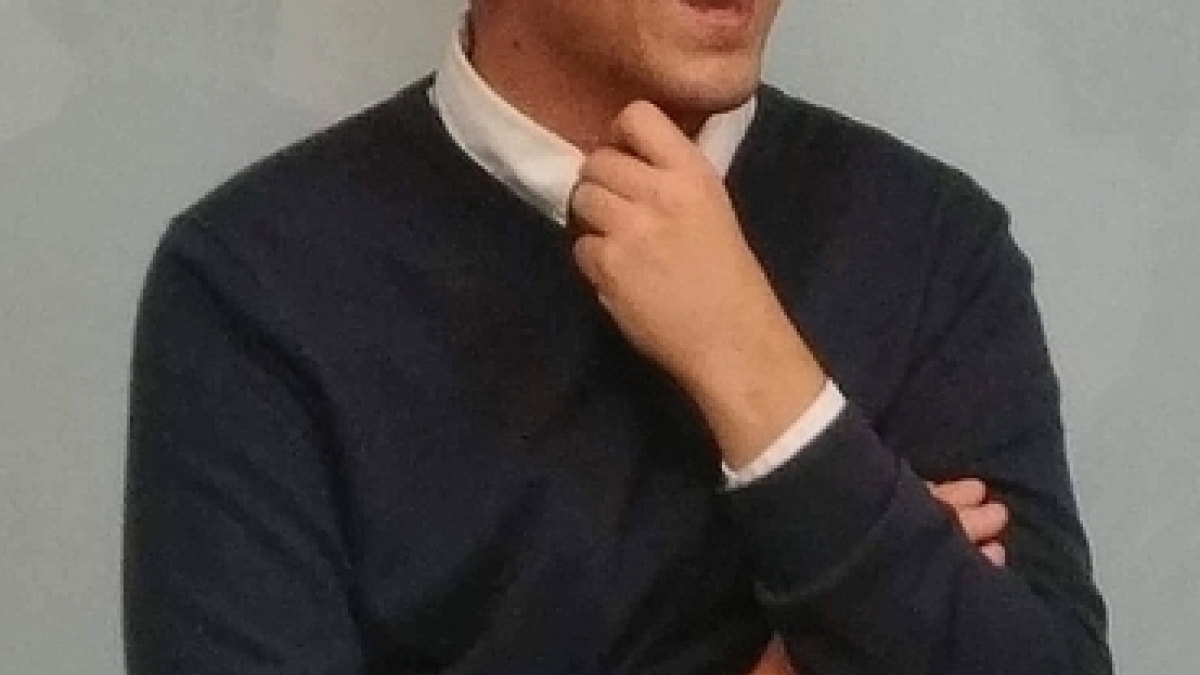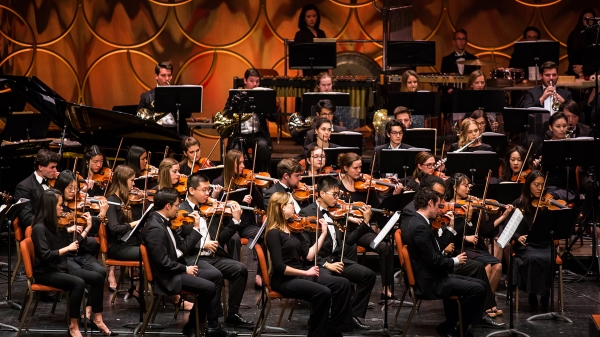Student's philosophical thinking leads him to Budapest

Forrest Schreick is getting ready to move to Budapest, Hungary, to pursue a PhD in philosophy at Central European University.
Forrest Schreick has long been a friendly face around Coor Hall. For the last six years, the graduating philosophy MA student made the School of Historical, Philosophical and Religious Studies his academic home and even helped fellow students as the writing tutor in the SHPRS Writing and Logic Studio.
“It was an excellent experience, and it was very fulfilling to help other students grow their skills in the craft of writing,” Schreick said about his experience as the writing tutor. “Being able to write clearly and concisely is a skill I value and constantly attempt to develop in myself.”
Schreick just successfully defended his dissertation “Russellian Monism and Mental Causation” and is getting ready to move to Budapest, Hungary, to pursue a PhD in philosophy at Central European University.
He answered a few questions about his time at ASU.
Question: What was your “aha” moment, when you realized you wanted to study the field you majored in?
Answer: For philosophy generally, it was when I was taking Dr. Botham's PHI 101 class. In that class, we engaged with difficult questions in a way that I really connected with. The only topic I didn't really care for at the time, philosophy of mind, ended up being the field I am now most passionate and curious about. This happened when I took Professor Kobes' Philosophy of Mind course as a junior.
Q: What’s something you learned while at ASU — in the classroom or otherwise — that surprised you, that changed your perspective
A: Between my ethics classes and talks with professors, my views about the permissibility of various acts have shifted dramatically over the years. Perhaps the best example is about whether or not it is permissible to eat meat. Going into undergrad, I never seriously questioned it (I'm the son of a butcher, after all). But, after reading Singer my freshman and sophomore years, I became a vegetarian. But, in the last couple months, after several discussions with Professor Portmore, I've been somewhat convinced that being a vegetarian is not an efficacious way of reducing animal suffering.
Q: Why did you choose ASU?
A: I didn't really have any direction or idea what I wanted to do when I graduated from high school. I went to Red Mountain in Mesa, and most students there funnel into ASU. I knew I wanted to go to university, so it just seemed like a natural choice.
Q: What’s the best piece of advice you’d give to those still in school?
A: I'm going to cheat and give two pieces of advice, but I think they're related. First, if you can, every semester take a class outside of your major or area. Some of my favorite classes in undergrad were classes I took out of a passing curiosity about a field I didn't know very much about. I learned so much in these classes, and they challenged the way I saw myself and the world. I think having your most intimate views challenged and being made to feel uncomfortable in some ways is an essential part of the university experience. If you don't know where to start, try anthropology.
Second, ASU is a huge institution and it's easy to just get lost in the crowd. But the benefit of the size of this institution is the sheer number of opportunities available. I think ASU gives to its students what they put into it. If you seek out additional opportunities, you can find them.
Q: What was your favorite spot on campus, whether for studying, meeting friends or just thinking about life?
A: Noble Library has always been a favorite place of mine. It's so much quieter than Hayden, so it makes a great place to study or relax before or after an important test. Though, I fear by saying this I may have let the secret slip.
Q: What are your plans after graduation?
A: After I graduate with my MA in May, my first project will be attempting to prepare the chapters of my thesis for publication. Then I will be moving to Budapest, Hungary, to pursue a PhD in philosophy at Central European University. I'll either continue my work on consciousness, pursue another topic in metaphysics more generally, or do research on the great German philosopher G.W. Leibniz. I developed a deep appreciation for the work of Leibniz in Dr. Watson's History of Modern Philosophy class and Professor Reynolds' Rationalism class. He was truly one of history's greatest minds and probably the last universal genius. Perhaps all that needed to be said about Leibniz was said by Diderot, “Perhaps never has a man read as much, studied as much, meditated more, and written more than Leibniz. … When one compares the talents one has with those of a Leibniz, one is tempted to throw away one's books and go die quietly in the dark of some forgotten corner.”
Q: If someone gave you $40 million to solve one problem on our planet, what would you tackle?
A: Climate change is truly an existential threat to humanity. So, I'd take that money to people who know much more about it and how to tackle it than I do.
More Arts, humanities and education

Small presses dealt big blow
A mighty rumble reverberated throughout the publishing industry late last month with the abrupt closure of a well-known book…

'Living dress' wins Eco-Chic sustainable fashion contest
When Elena Marshall is done showing off her award-winning “living dress,” she’ll bury it in her backyard. The dress, a chic…

ASU Symphony Orchestra welcomes visionary conductor Jonathan Taylor Rush
Guest conductor Jonathan Taylor Rush will join Arizona State University’s Jason Caslor, director of bands, to lead the ASU…